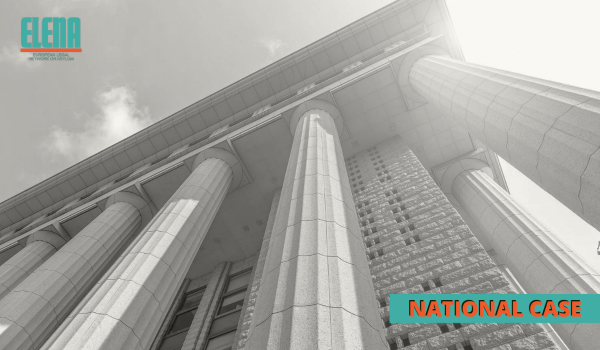On the 20th of June 2023, the Polish Supreme Court issued its judgment II KK 148/22. The case concerned a Russian mother, R.Z., who applied for asylum in Poland but moved to Germany, from where she was subsequently returned back to Poland with her newborn daughter. The Polish authorities placed them in a guarded centre for approximately 16.5 months, initially justified by their asylum procedure and later the expulsion procedure. The applicant appealed and sought compensation for their unlawful detention.
The Supreme Court clarified conditions for detaining asylum applicants and emphasised that they cannot be detained automatically, for the sole reason of applying for international protection. The Court then highlighted that asylum applicants’ detention should not be punitive or justified by the need to protect national or EU borders. The Court stressed that detention has to be based on the individual assessment, necessary and proportionate. The applicants may only be detained for as long as the grounds for their detention are justified. In that regard, the Court acknowledged that detention may be justified by the need to undertake certain activities involving the applicant concerned, but becomes unlawful when such activities are not carried out or do not require such a lengthy time. The Supreme Court held that the Court of Appeal did not examine the necessity element of the applicant’s detention neither it assessed the risk of absconding.
The Supreme Court further emphasised the lack of assessment of the child’s wellbeing and best interests. The Court held that detaining a mother with a young child generally threatens the child’s development and an individualised assessment is required considering physical, psychological, and developmental aspects in line with the ECtHR jurisprudence.
The Supreme Court also clarified lawfulness of detention based on the delay in obtaining documents from third countries (such as Russia) preventing the execution of a deportation decision. It held that the assessment of a “delay” by a third state should be based on the time-limits prescribed by law. Moreover, the Court held that detention becomes unlawful when the six months limit for detention is exceeded and new grounds have not been justified. In view of the above, the Supreme Court referred the case for re-examination by the Court of Appeal.
Based on an unofficial translation from within the EWLU-team

